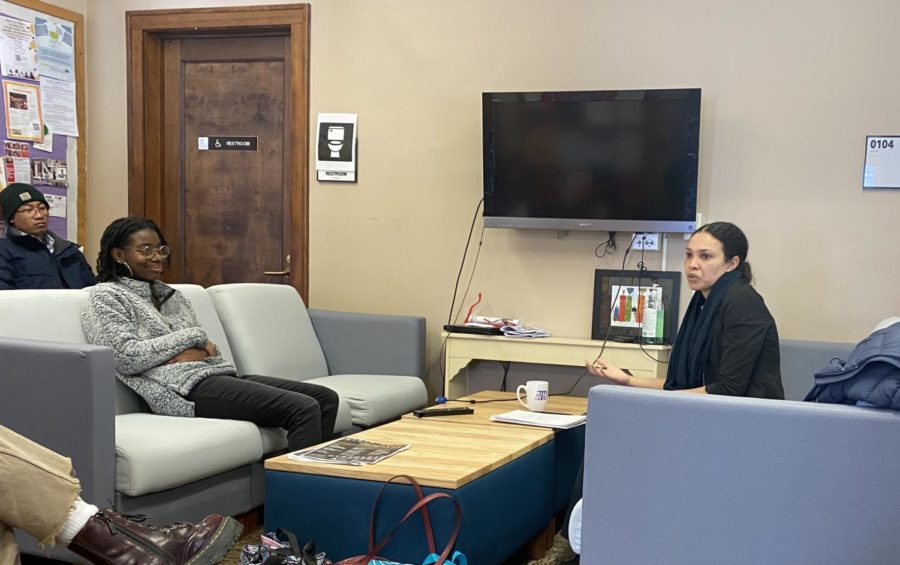Feminist Friday addresses Syrian refugee crisis
Nell Gabiam, associate professor of anthropology and political science in the department of World Languages and Cultures, addressed “Home, Hospitality and Affective Politics in the Syrian Refugee Crisis.”
February 7, 2020
At this week’s Feminist Friday, Nell Gabiam, associate professor of anthropology and political science in the department of World Languages and Cultures, addressed “Home, Hospitality and Affective Politics in the Syrian Refugee Crisis.”
Gabiam is a published author of a novel called “The Politics of Suffering: Syria’s Palestinian Refugee Camps,” which examines international aid, humanitarian relief and economic development within the space of the Palestinian refugee camp in addition to the residents of three refugee camps located in Syria.
The Syrian Civil War has been active for over eight years since the initial March 15, 2011, Arab Spring protests commonly known as the Syrian Day of Rage protests. As of July 18, 2011, it was declared by the International Committee of the Red Cross the crisis was to be known as a civil war.
The most recent numbers released by the United Nations High Commissioner for Refugees in 2018 recorded 6.7 million refugees from the Syrian Arab Republic, which includes a widely diverse population of people including but not limited to Syrian, Palestinian, Iraqis, Sudanese and Lebanese individuals.
“I don’t want to minimize some of the tensions that have risen around immigration but I also saw a lot of goodwill and a lot of solidarity from just ordinary people,” Gabiam said.
As of 2017, the country Turkey hosts more than three million refugees while less than 10 percent of these refugees are in the refugee camps due to the inherent dehumanizing nature of these camps.
This dehumanizing nature continues despite the many International Non-governmental Organization’s programs actively trying to provide humanitarian aid and support to provide the necessary and vital services to those in need. In addition, there are educational programs designated to relocate eligible individuals in other countries to pursue higher education with the help of scholarships.
One of the main locations of these programs was in the United States but has since been transitioned to Canada following President Donald Trump’s three executive orders including Interior Enforcement, Border Security and Refugee.
“With this sort of disappointment in the formal political process and formal political process perhaps we are seeing the emergence of a different kind of politics that’s happening at a sort of everyday level through this encounter between refugees from Syria and host societies where forms of solidarity emerged,” Gabiam said.
In 2017 Trump signed an order titled “Protecting the Nation from Terrorist Attacks by Foreign Nationals.” The order officially suspended the issuance of visas to nationals from Iran, Iraq, Sudan, Syria, Libya, Somalia and Yemen.
It additionally shut down the U.S. refugee program for 120 days and reduced the number of refugees to be admitted from 110,000 to 50,000. It also indefinitely cancelled the resettlement of Syrian refugees while launching a screening mechanism for the entry of foreign nationals with requirements for the Department of Homeland Security to expedite completion of an entry-exit tracking system.
Next week’s Feminst Friday speaker will be Jazzmine Brooks, the equity and inclusion coordinator in the Office of Equal Opportunity, who will be addressing “Rural Black Doula Chronicles: Addressing the Disassociation of the Body and Mind.”







